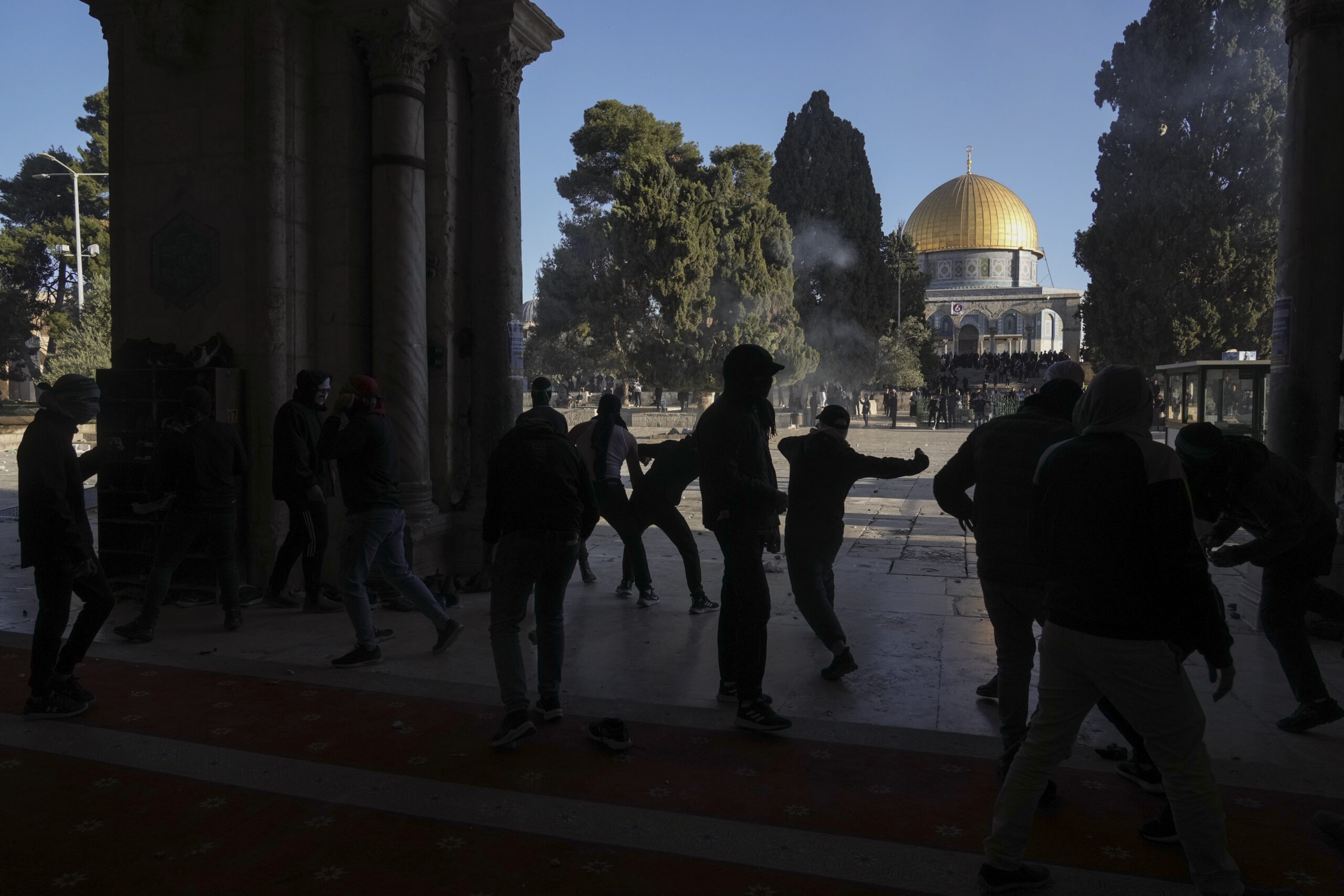Why a visit by Israel’s national security minister to Al-Aqsa Mosque caused a firestorm
(RNS) — Since Israel was established in 1948, only one prime minister — the current prime minister’s predecessor, Naftali Bennett — wore the kippah that religious Jews wear. From its founding, Israeli politicians have tried to walk a thin line between the rule of law of a secular state and the faith tradition implicit in a Jewish one.
When Itamar Ben-Gvir, the kippah-wearing national security minister in Israel’s new government, visited the Al-Aqsa Mosque complex on Tuesday (Jan. 3), it was clear that his intention was to trample this line and push Israel toward what in 74 years it has claimed it is not: a theocracy. With his visit, Ben-Gvir, the leader of the Jewish Power Party, signaled his intent to champion an extreme form of Zionist nationalism and religious Jewish fundamentalism that threatens any hope for peace.
The visit on Tuesday caused an immediate political storm in the Arab and Muslim worlds. The mosque, which Jews revere as the site of their two ancient temples, is the third holiest shrine in Islam, and under a 2014 agreement, brokered by then-U.S. Secretary of State John Kerry and based on a centuries-old understanding, “Al-Aqsa is for Muslims to pray and for all others to visit.”
United Arab Emirates leader Mohamed Bin Zayed canceled a planned visit by the new Israeli prime minister, Benjamin Netanyahu, to Abu Dhabi. Jordan’s summoned the Israeli ambassador and gave him a strongly worded letter to be delivered to his government. The letter, according to Jordan’s foreign ministry spokesperson, “stressed the importance for Israel, as the occupying force, to adhere to its obligations as per international law and specifically international humanitarian law.”
The letter also reminded Israel that “exclusive authority” over the mosque complex belongs to the Jerusalem Waqf, a ministry run by Jordan that manages the holy site.
On Thursday, the U.N. Security Council called an emergency meeting over the visit and its impact.
The concern about Ben-Gvir’s visit is well-founded. Twenty-two years ago, Israeli opposition leader Ariel Sharon made a similarly provocative visit to the Al-Aqsa Mosque, which led to a nearly five-year-long cycle of violence that came to be known as the Second Intifada. This time, in response to Ben-Gvir’s announced intention to go to the holy shrine after the Israeli elections, the Islamic Hamas movement in Gaza and the Palestinian leadership in Ramallah warned that a visit by the minister in charge of Israel’s national police force could cause similar protests.

Palestinians clash with Israeli security forces at the Al-Aqsa Mosque compound in Jerusalem’s Old City, Friday, April 15, 2022. (AP Photo/Mahmoud Illean)
In fact the reaction could be much worse. Sharon’s visit in 2000, part of his successful campaign to replace Prime Minister Ehud Barak, was a political stunt. Ben-Gvir is after something more concrete: He has publicly called for a change of the status quo of Muslim control that has governed in this sacred location for 13 centuries.
The visit comes, too, as frictions over the use of the site have been rising. For years, radical Jews have been increasingly bold in going up to the Temple Mount in groups to pray and even hold religious ceremonies, trying to reclaim the site despite a decades-old decree signed by Israel’s two chief rabbis calling on Jews not to enter the area due to its holiness.
Given that Ben-Gvir campaigned in the recent national election on his party’s commitment to changing the policy, his visit represents an official support for this activity and a repudiation of the status quo by the person charged with enforcing the law and keeping the peace.
Days before Ben-Gvir’s visit, Jordan’s King Abdullah II went on CNN to warn, “If people want to get into a conflict with us, we’re quite prepared,” adding that, “if people want to push those red lines, then we will deal with that.”
Prime Minister Benjamin Netanyahu, not known for keeping his promises, has sought to assure Israel’s allies that he will not allow any change of the status quo. But already, after warning Ben-Gvir not to make his visit, Netanyahu folded, saying he would not be intimidated by those who warned that violence would follow. The prime minister’s willingness to support Ben-Gvir’s recklessness shows that he will do anything to cling to his power, even allowing a minister he can’t control to enter an Islamic holy place with armed Israeli soldiers.
It is not enough for Israel’s Western allies to denounce Ben-Gvir’s visit and to hope their words of restraint will be taken seriously. Israel must decide whether its future will be as a modern secular state or a theocracy.
(Daoud Kuttab is an award-winning Palestinian journalist from Jerusalem and the former Ferris professor of journalism at Princeton University. Follow him on Twitter @daoudkuttab. The views expressed in this commentary do not necessarily reflect those of Religion News Service.)

Comments are closed.